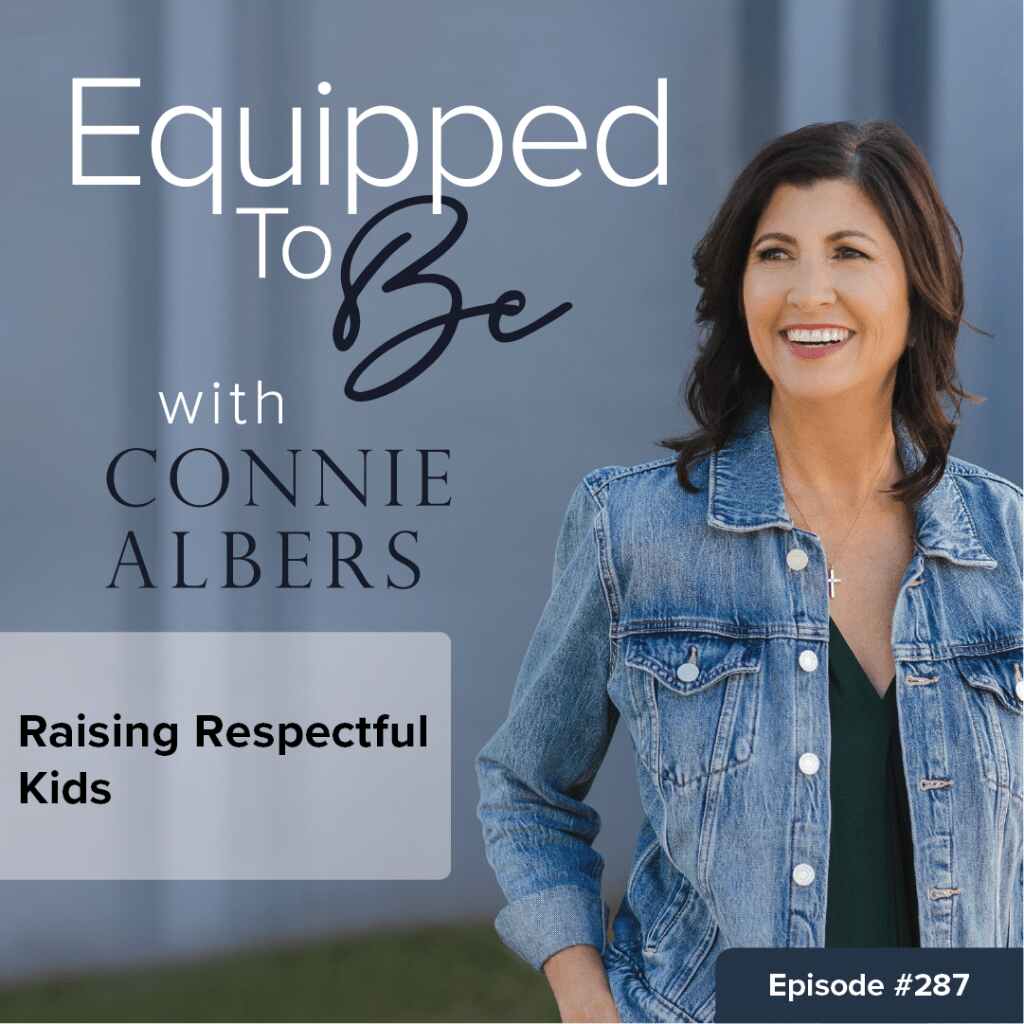Raising Respectful Kids in a Disrespectful World feels harder than ever. We live in a time when sarcasm earns laughs, disrespect goes viral, and kindness can seem outdated. Yet the truth is, manners haven’t disappeared; they’ve just changed.
As parents, we’re not just teaching “please” and “thank you.” We’re teaching our kids how to honor others, see beyond themselves, and show love in everyday ways: online, at school, and around the dinner table.
Scroll through almost any comment section today, and you’ll see it: sarcasm, insults, shouting in all caps. Adults do it. Teens do it. Even kids pick up on it. I’ve heard eight-year-olds roll their eyes and say things like, “Whatever,” in the same dismissive tone they see online.
It’s no wonder so many parents tell me, “My child isn’t trying to be rude; they just don’t know what respect looks like anymore.” Somewhere along the way, we stopped modeling what it means to disagree without dishonoring, to speak truth with grace, or to show kindness when it’s not convenient.
The truth is, manners haven’t disappeared; they’re evolving. What used to mean saying “please” and “thank you” now includes how we treat people behind a screen, how we handle disappointment, and how we show empathy in a distracted world.
As mothers, we feel this tension every day, wanting to raise kind and respectful children in a world that often rewards quick comebacks over gentle words. It’s exhausting trying to balance grace with guidance, but it’s also one of the most important lessons we can teach.

“As a mom, I remember thinking, if I want my kids to grow up to be kind, respectful adults, I have to model that every day… even when others aren’t.” Connie Albers
So how do we do that in a culture that seems to have forgotten the language of respect? Let’s start by understanding what happened to manners in the first place.
The Changing Face of Manners
Manners used to mean following a social code. Today, they’re about heart posture.
Once upon a time, manners were a normal part of daily life. We were taught to greet others, shake hands, and write thank-you notes. Those small acts were considered essential to being a kind, considerate person.
But as screens replaced face-to-face interaction and self-expression became the highest virtue, courtesy began to feel optional. In a world where everyone wants to be heard, fewer people are learning how to listen.
Yet, underneath the noise, something essential has been lost: the reminder that respect is how we show others they matter.
Research backs this up. Studies from the American Psychological Association show that children who practice empathy-based manners, like waiting their turn, apologizing, or expressing gratitude, develop stronger relationships and greater emotional resilience. Manners don’t just make children likable; they help them thrive socially and emotionally. And I would also say, more like
“Good manners used to be about doing what’s proper. Now they’re about doing what’s honoring.”
That shift is where we, as parents, step in. To raise respectful kids, we need to redefine what manners mean for this generation and show our children what honor looks like in everyday life.
Redefining Manners for a Modern World
In today’s culture, manners aren’t about memorizing rules; they’re about seeing others through God’s lens of empathy and respect.
Children are growing up in a fast-paced, self-focused world. That means we must help them slow down enough to notice others. When they learn that kindness and courtesy aren’t outdated, they begin to understand the power of small gestures.
Digital manners now encompass how we comment online, respond to texts, and interact with others in digital spaces. Tone matters, even through a screen.
Conversational manners mean listening before speaking, asking thoughtful questions, and disagreeing without demeaning.
Gratitude manners go beyond saying “thank you.” They include showing appreciation through action, like serving, helping, or giving sincere praise.
When we redefine manners for a modern world, we’re really teaching how to love others well.
“When we teach manners as a reflection of the heart, not a set of rules, our children carry respect wherever they go.”
And that begins in the place where children learn the most — home.
Modeling Respect at Home
Children don’t learn respect by hearing about it; they learn it by seeing it. Every day, our tone teaches as much as our words.
They notice how we talk to a cashier who gets our order wrong, how we respond when interrupted, and how we treat others when we’re tired or frustrated. Those small interactions create the atmosphere of our home.
As parents, when we pause before reacting, listen fully, or admit our own mistakes, we model humility and self-control which is the foundation of respect.
Jesus Himself modeled this beautifully. He treated others with dignity, listened to their hearts, and showed compassion even toward those who misunderstood Him. That’s the kind of respect that transforms relationships.
“When our children see us practice kindness under pressure, we show them that respect isn’t a reaction—it’s a choice.”
The way we live teaches louder than the words we say. And in today’s digital world, that truth matters more than ever.
Respect in the Digital Age
If you’ve ever seen a text taken out of context or a sarcastic comment escalate online, you know how quickly tone can be misread. Children who spend more time behind screens than at dinner tables need guidance on how to show respect in digital spaces.
Teach your kids to pause before posting, to avoid responding in anger, and to remember that words on a screen still have a lasting impact on a heart.
A simple family rule could be: “If you wouldn’t say it face-to-face, don’t type it online.”
By framing online behavior through respect, we’re helping our children become trustworthy voices in a noisy world.
Teaching Manners That Stick
Teaching manners that last means connecting them to purpose, not performance. Kids will forget polite scripts, but they’ll remember how it felt to treat someone with dignity.
Here are a few simple ways to make manners part of your family’s rhythm:
- Use teachable moments. When conflict arises, ask, “How could we handle that with more kindness next time?”
- Role-play real life. Practice responding respectfully when upset, embarrassed, or frustrated.
- Make gratitude visible. Write thank-you notes, say “thank you” at meals, and point out moments when others show kindness.
- Explain the why. “We speak kindly because people are made in God’s image, and that makes them valuable.”
These moments plant seeds of character that grow over time — shaping hearts far more than habits.
“Children raised in homes where respect is modeled will naturally grow up to lead with kindness.”
When manners come from meaning, they stick for life.
The Ripple Effect of Raising Respectful Kids
Respectful kids grow into trustworthy adults, the kind who lead well, listen deeply, and treat others with dignity.In a world that often rewards rudeness, kindness stands out as a beacon of hope. Respect becomes their quiet form of leadership.
Scripture reminds us: “Let all that you do be done in love.” (1 Corinthians 16:14) When we root respect in love, we raise children who not only behave well but also bring grace into spaces that desperately need it.
“You can’t control the tone of the world, but you can set the tone of your home.”
And when you do, the tone your children carry into the world becomes one of light, not noise.
Wrapping It Up
Raising respectful kids in a disrespectful world may feel like swimming upstream, but that’s exactly what sets your family apart.
Every act of gentleness, every “thank you,” every patient pause sends a message to your children: This is who we are. This is how we love.
Before the day ends, pause and ask yourself:
“What tone did my home carry today?”
Was it hurried, harsh, or gentle? That tone shapes more than behavior. It shapes hearts.
Respect isn’t outdated; it’s revolutionary.
Start today. Speak kindly. Listen closely. Show gratitude freely.
Because when we refresh what manners mean, we don’t just change our children, we quietly change the world around them.
Sponsors, Related Shows, and Links
The following may contain affiliate links:
- Parenting Beyond the Rules: Raising Teens with Confidence and Joy by Connie Albers
Related Episodes
How to Connect with Connie
- Follow Connie Albers on Instagram | Facebook |X | Pinterest
- Learn more about Connie’s book, Parenting Beyond the Rules.
- Learn more about the Equipped To Be podcast
Subscribe to Equipped To Be
If you find this podcast helpful, please consider subscribing and leaving a review. It’s a great way to support the show and only takes a few seconds.


